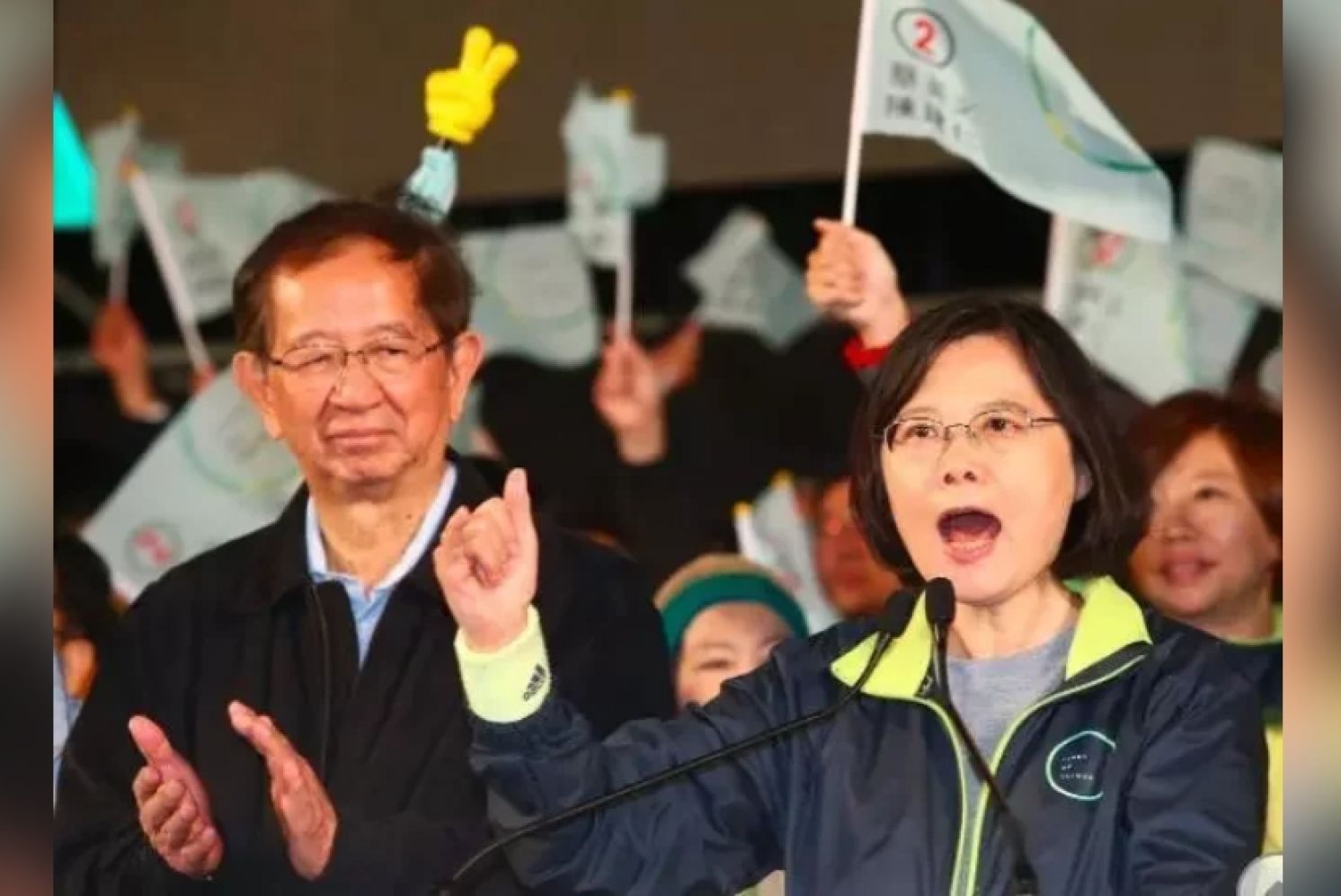
President Tsai's Brushes Lee Yuan-tseh off and Makes a Fool of the People
United Daily News Editorial, October 14, 2022
In an interview, Lee Yuan-tseh, former president of the Academia Sinica, stated that he had approached President Tsai Ing-wen to discuss the issue of greenhouse gas emissions. However, President Tsai brushed off the matter by saying, “It is none of my business after 2024”, tossing the problem to the future. Lee criticized that since the Democratic Progressive Party (DPP) came to power, it has corrupted faster than in the past. Its primary concern is the election and its interests, forgetting the ideal to serve people. Lee supported Chen Shui-bian in the 2000s and endorsed Tsai in 2016, and both of them successfully took the presidential office. Today Lee publicly condemns the DPP’s degeneration and corruption. Is he trying to ease his conscience or offer his repentance? Or perhaps neither?
In reality, Lee began criticizing President Tsai’s energy and carbon emission policies three years ago. At that time, he was a senior advisor to the President. Lee believed that the net-zero carbon emission policy was wrong and wanted to discuss the matter with President Tsai. However, President Tsai only replied coldly, “It is none of my business after 2024.” Soon afterwards, Lee and other heavyweight seniors issued a public letter, demanding President Tsai to refrain from running for the presidential re-election in 2020. Since 2019, Lee has supported William Lai, a self-proclaimed “pragmatic advocate of Taiwan independence,” but Lai did not successfully become the president.
Disregarding Lee’s political stance and preference, his criticism of President Tsai’s inattentiveness to energy and carbon emission policies is not ungrounded. In recent years, Taiwan’s air pollution has intensified, power outages have occurred continuously, and environmental protests have aroused concerning the construction of natural gas receiving stations. These are all evidence that the Tsai administration’s energy policy is struggling to keep up. The problem remains that President Tsai does not accept suggestions for policy adjustments from the outside world. Even when the external environment has gone through dramatic changes, the prices of oil and natural gas continue to soar, and green power generation is behind schedule, President Tsai still refuses to make reasonable changes to the energy policies. If the current situation persists, Taiwan will face power shortages and power outages as well as increasing carbon emissions and worsening air pollution.
Under such circumstances, it is not hard to imagine that she answered: "It's none of my business after 2024" in reply to Lee's questions, although her response may not have been so direct or straightforward. In this regard, the spokesman of the Office of the President quoted President Tsai’s National Day address that energy transition to net-zero emission “requires the joint efforts of all the people.” President Tsai’s statement only shows how weak her justification is, and her remarks on National Day was empty and filled with abstract words, which follows her previous “Tsai's empty style”. If energy transition and net-zero carbon emission depend on “all people’s efforts”, then the President can blame the people for not putting in enough effort to meet the goal in the future. In that perspective, what responsibility does the President have?
Perhaps it is because the presidential term is limited for President Tsai to bluntly reply, “It’s none of my business after 2024”. The energy transition plan that she proposed ends in 2025. One may suspect that President Tsai is skipping steps because her term ends in 2024. Her calculation may be that the outside world cannot question her policy when she leaves office in 2024 because the fulfillment of the policy plan remains another year. If the 2025 policy failed, then the president at the time, not President Tsai, would bear the responsibility. President Tsai sure has her game plan prepared, it seems.
With the halo of a Nobel Prize laureate, Lee twice supported the DPP in power. Today he grieves over the fact that “it is corrupting even faster than in the past.” His awareness may be overdue, but the Taiwanese people have been suffering in their hearts with nowhere to voice their concerns. Promising a non-nuclear home is painting a rosy picture. Who has not noticed the numerous power outages? Whenever a senior advisor to the President has a different opinion, it is common for the Tsai administration to find a replacement. However, some officials are controversial, but because they are experts at flattery and taking cues, they can hold office for the longest. Many years ago, the DPP shouted for the separation of party work from government work, the separation of five government powers, and the withdrawal of party, government and military from campuses. Today, the Tsai administration puts on the act of “party and government as one”. All five government powers are under her command, and the state machine has become the protector of the DPP’s interest. Lee sees the downward spiral, but he simply did not point them all out in detail.
“Power corrupts, and absolute power corrupts absolutely.” This phrase is a tried and true political theorem. President Tsai’s perfunctory towards Lee is proof of corruption due to absolute power. If the people are still willing to endure her endless empty words and deceit, then they are democratic fools.